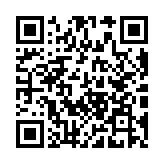Key Themes and Insights
1. Emotional Runway vs. Financial Runway
- Financial Runway: Refers to the amount of money a company has to sustain operations.
- Emotional Runway: A less-discussed but critical concept that reflects the mental and emotional capacity to continue working on a project.
- Emotional highs and lows can drastically affect this runway.
- Acknowledging the existence of emotional runway is crucial.
2. Factors That Shorten Emotional Runway
Neglecting Physical Health:
- Poor sleep habits lead to reduced energy, bad decision-making, and emotional burnout.
- Example: Drinking excessive caffeine to compensate for lack of sleep creates a vicious cycle.
- Solution: Prioritize sleep, measure its quality (e.g., using apps or journals), and maintain consistent routines.
Working on Projects You Don’t Care About:
- Building something solely because it’s perceived as a good business idea or because others suggest it can lead to disinterest and burnout.
- Sharif emphasized building products you personally want to use, as this aligns with your passion and ensures authenticity.
Toxic Team Dynamics:
- Working with pessimistic or incompatible team members can drain emotional energy.
- Recommendation: Collaborate with optimistic, enjoyable colleagues who pass the “airport test” (spending long hours together comfortably).
3. Strategies to Maximize Emotional Runway
Prioritize Sleep and Health:
- Treat sleep as the number one priority, even over work.
- Exercise regularly and maintain overall physical health.
Work on Projects You’re Passionate About:
- Build products you personally want to see in the world.
- Example: Sharif’s success with Lexica stemmed from solving his own problem (searching for prompts in Stable Diffusion) versus his earlier project that lacked personal relevance.
Collaborate with People You Like:
- Surround yourself with team members who share your enthusiasm and positivity.
- Positive team dynamics can help sustain motivation during tough times.
4. Practical Advice for Founders
Journaling for Self-Awareness:
- Daily journaling helps track emotions and identify burnout early.
- Writing clarifies intangible feelings and aids in emotional processing.
Taking Time Off:
- Avoid working seven days a week; take at least one day off (e.g., Sundays) to recharge fully.
- Rest is essential for starting each week with a clear mind.
Managing Emotional Ups and Downs:
- Share emotions selectively with your team based on personal comfort and team size.
- Offloading some emotional burden can foster team cohesion.
Handling Stagnation:
- Prepare emotionally for difficult periods by building resilience (e.g., reducing neuroticism).
- Focus on product development and marketing strategies that align with personal interests.
5. Balancing Work and Personal Life
- Early in his career, Sharif prioritized work over relationships but later realized the importance of balance.
- Recommendation: Treat relationships with friends and family as equally important, if not more so, than work.
6. Dealing with Drudgery in Startups
- Even when working on a product you love, operational tasks (e.g., customer support, billing) can feel tedious.
- Accept these tasks as necessary but focus on the bigger picture of creating something meaningful.
7. Emotional Liftoff vs. Infinite Runway
- Unlike financial runway, emotional runway doesn’t have an “infinite” state.
- Emotional burnout often causes companies to fail even when financially stable.
- Founders need to manage their emotional runway proactively to sustain long-term motivation.
8. Overcoming Burnout
- Follow curiosity and work on exciting, novel ideas to reignite passion.
- Collaborate with enthusiastic teammates whose energy can be contagious during low periods.
- Trust that challenges will eventually resolve with persistence.
Q&A Highlights
- Tracking Burnout: Journaling daily helps detect early signs of burnout by reflecting on emotions and patterns over time.
- Routine: Sharif doesn’t follow strict routines but consistently journals for emotional clarity.
- Working Seven Days a Week: Not necessary; taking intentional rest days improves productivity and clarity.
- Sharing Emotions with Team: Balance transparency with personal resilience; involve the team in challenges when appropriate.
- Emotional vs. Financial Liftoff: Emotional runway doesn’t become infinite; managing it requires constant effort regardless of financial success.
- Balancing Personal Relationships: Shift focus toward relationships over time; they provide long-term fulfillment beyond work.
Conclusion
Sharif’s talk emphasizes that success in startups isn’t just about financial metrics but also about maintaining emotional health. By prioritizing sleep, building projects you care about, working with compatible teammates, journaling, taking rest days, and balancing personal relationships, founders can extend their emotional runway and improve their odds of success while leading healthier lives.
